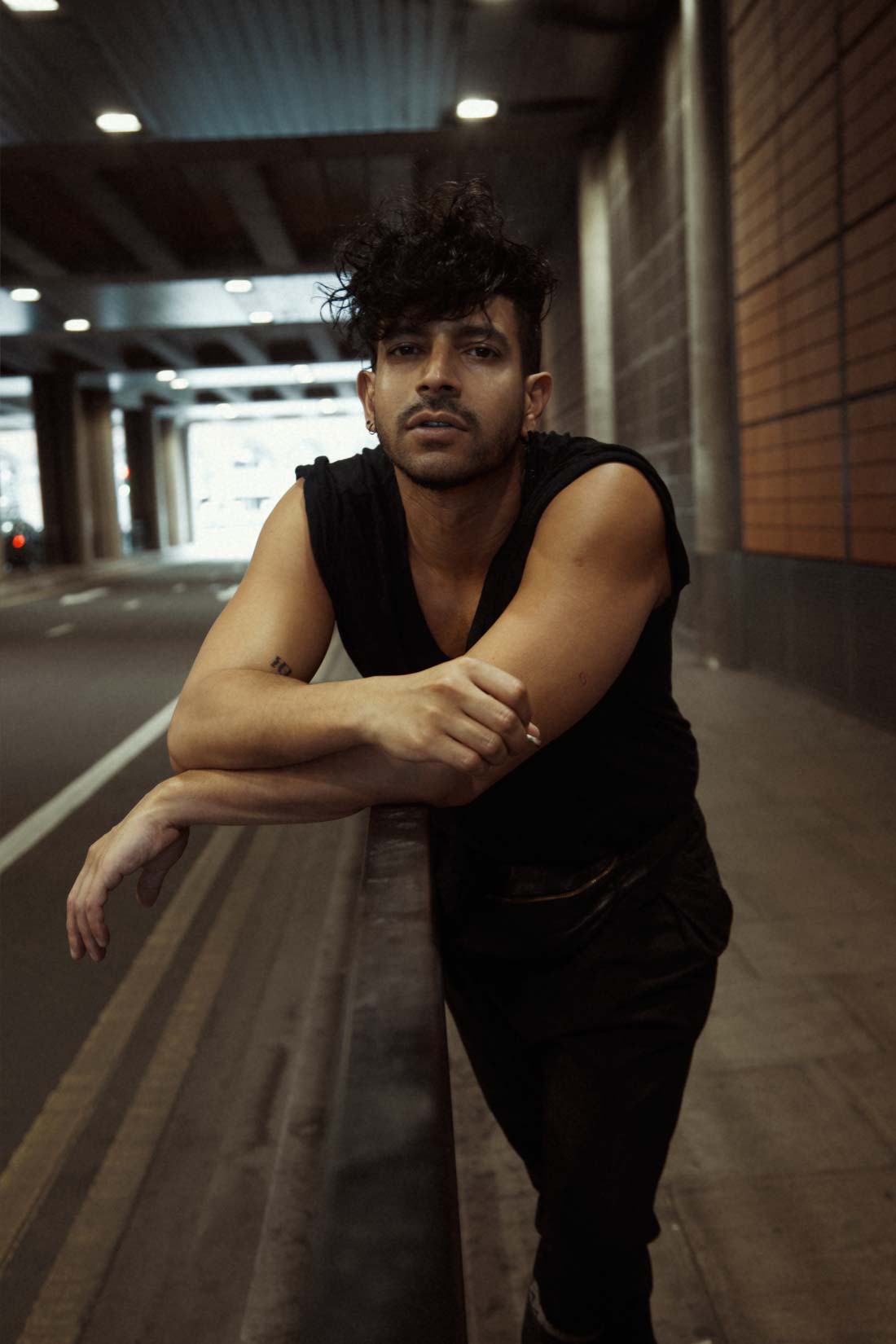Nik Thakkar is the breath of fresh air needed by the music industry. His persona NEO 10Y is rapidly grabbing the attention of audiences worldwide by delivering substance, thought evoking lyrics and ridiculously good style. This London born artist seems to have found the key to success – living fearlessly.
You have so many talents and abilities under your belt, what do the different art forms allow you to create, individually?
You know, I think there’s double edged sword with being multi-sensory. To an extent it is the same as being an creative empath, you experience the world and feelings in a unique, over and/or underwhelming way that almost forces you to recreate it in your own guise – sonically, visually, poetically. For me it all still sits under one umbrella, if you dissect my universe, my designs and films with Ada + Nik, NEO 10Y as a construct, anything that represents me visually – even this shoot for example – they all hold a sense of almost objective dystopian synergy. To me that’s what multi-platform art is, or at least controlled deviation in different formats.
What does creating music allow you to do, that other art forms don’t?
To me, all art is a release that can be received on different levels by different people; but music specifically is something that can be amplified, but remains invisible and therefore almost more subjective than anything else.
Does your album follow a particular concept? How big a part do lyrics play in your music?
The narrative for the album, when it comes out this Fall, is a story of fighting through and not giving up. There’s a really low almost suicidal moment in the record which you’ll hear when it comes out in a song called Dirt Cobain. My lyrics are everything, I write every single day and lyricism is the most fundamental part of this process for me.
You get a lot of messages across in your art, how social media fit into how you get your message across to your audience?
Social media will never do real art justice. You have to experience it away from that to really immerse yourself, but it’s a great way to share your work and compliment your artistic identity. I think its a necessity in a sense, or you can be subversive and create amazing art but have really awful social media game. It just depends what stage you’re at.
In terms of your career in music, where would you like it to take you?
I’ll be legacy artist that will keep making music in some form for the rest of my life. I have no doubt about that at all. Music found me when I was a kid and I stopped for almost ten years because I lost out on a scholarship, so I gave it up. I will never do that again. I am just glad that I won’t die with that regret.
On that note, what would your ideal live venue be?
A giant construct in a desert at night.
You have produced work that has been called “controversial” and may be perceived as quite shocking. Do you ever feel nervous before releasing your work out into the world?
Nah, I’m never nervous anymore and to be honest, the “controversial” stuff still merits more visibility.
Do you find that you create different pieces of work, depending on the language you are working in?
I think the output can be different, for example with Janis, I rap in French which gives the track a whole different energy because of the intonation. Then on Wild West, there are a few lines in French intertwined with the English so that kind of elevates the drama. Language means so little and yet so much in music. It’s integral to communicate lyrics, but then there are people that listen to music that don’t listen to the words.
How important is your personal image in what you do?
Image is kind of integral to success in any entertainment or arts field, especially today and in what I do. I think there’s two ways of looking at it, you can be the subject of your work without being a narcissist, but you can also only let your work speak for itself, which is personal branding in itself, through exclusion.
Returning to your vast list of skills and capabilities, what has been the most challenging part of your career?
Finding myself. Realising that I didn’t fit in a box or a singular dimension, and that being poly is viable and acceptable – in love or your artistry.
Interview by Ian Casey
Photography by Andrea Vecchiato





